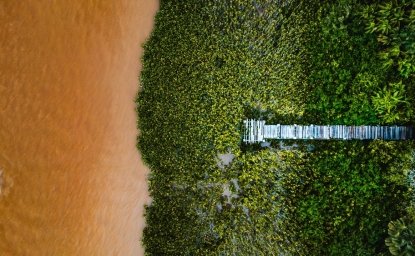Earth Challenge 2020: A Citizen Science Initiative
Announces Launch of Research Questions
April 22, 2020 marks the 50th anniversary of Earth Day. In recognition of this milestone Earth Day Network, the Woodrow Wilson International Center for Scholars, and the U.S. Department of State are launching Earth Challenge 2020 as the world’s largest coordinated citizen science campaign.
Earth Challenge 2020 will engage millions of global citizens and will aggregate and collect more than one billion data points in areas including air quality, water quality, biodiversity, pollution, and human health. Citizen science volunteers around the world will collect and share Earth science data on an unprecedented scale, providing new insight on the state of our environment to drive meaningful action.
Right now, we are inviting citizen scientists of all ages and concerned global citizens to participate in defining the critical research questions that will guide Earth Challenge 2020.
The process is open to the public and we are encouraging everyone to participate.
Earth Challenge 2020 is recruiting research questions via a simple web form (https://www.earthday.org/earthchallenge2020). The site includes instructions for submitting research questions as well as sample questions.
In addition, we invite questions to be submitted via Twitter (@Earth_Challenge) by using the hashtag #EC2020.
Questions should center around what is impactful to you and your community, e.g.:
- How much plastic is in my water? #EC2020 @Earth_Challenge #citsci
- Are invasive species being effectively managed? #EC2020 @Earth_Challenge
- How does air quality impact the health of my community? #EC2020 @Earth_Challenge
Research questions may be submitted from October 22, 2018 to November 22, 2018. After research questions have been collected, the Earth Challenge 2020 research team will analyze submissions for common themes, distilling the questions for review and refining by an expert panel.
The panel will choose the final research questions that will guide Earth Challenge 2020. Selections will be made based on criteria including level of global interest, geographic diversity, global impact, partnerships, and feasibility. The final research questions will be announced early 2019.
The timeline for Earth Challenge 2020 spans eighteen months. In 2019, hackathons will be hosted around the world to help create the technologies that will underpin Earth Challenge 2020 and encouraging existing citizen science projects to join our efforts. Finally, in April 2020, a new mobile app and global data collection campaign will launch with the objective of collecting one billion data points by Earth Day that year.
With the support of valued partners and global citizens, Earth Challenge 2020 has the potential to be the largest coordinated citizen science project ever attempted on Earth.
Learn more about Earth Challenge 2020 by visiting our campaign website.





